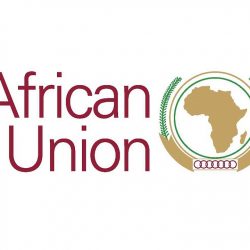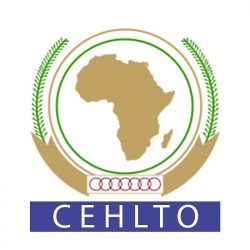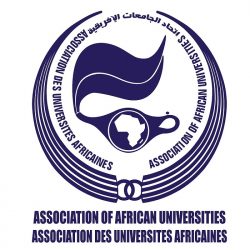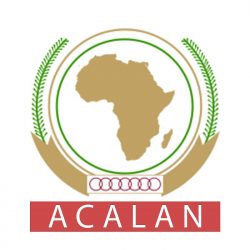About EAP
WHO WE ARE
The Encyclopaedia Africana Project (EAP) is a Pan African initiative headquartered in Accra, Ghana, with the mission to produce and publish peer-reviewed articles devoted mainly to Africa and its people, including the people of African descent outside the continent and to operate as the preferred channel for authentic information on Africa and about African life within the continent and to the rest of the world.
We seek to research into African life, history, economic, architecture, etc which will be authentically African in its point of view and at the same time a product of scientific scholarship; providing a richer and more authentic and nuanced narrative of Africa and about Africans on the continent and in the diaspora. The project is expected to expose the youth to self-knowledge and self-re-discovery leading to new thinking in the minds of Africans and restoration of the African dignity.
The African Union (AU) has adopted the EAP as one of the Pan Africanist Movement legacy projects to be revitalized to help drive the Union’s Agenda 2063 vision of building an Africa with a strong cultural identity, common heritage, values and ethics.
OUR AIMS AND OBJECTIVES
- Curb misrepresentations, distortions and misconceptions concerning the authentic knowledge of the African continent and its people to the world.
- Reconstruct the authentic knowledge about the history, culture and social institutions of Africa and people of African descent
- Identify scholars to generate and peer-review articles on different subjects for publication
- Facilitate networking and collaborations on subject of mutual interest with Academic/Research institutions and external academic communities
- Facilitate the formation of National Coordinating Committees in every African country for purposes of funds mobilization and to enlist assistance of scholars in various African universities and research centres to contribute to the Encyclopaedia.
OUR STRATEGIC GOALS
- The strategic goals of the Encyclopaedia Africana Project include;
- Present Africans with a body of truths and set the records straight regarding African history, culture and Africans contributions to world development
- Expose Africans to self-knowledge and self-re-discovery leading to new thinking about African problems and restoration of the African dignity
- Enrich the curricula for teaching and learning of African history and culture across all educational institutions on the continent
- Engrain in the African youth, African values and the spirit of Pan Africanism
- Promote the building of the African continent, learning from the past and building on its progress by exploiting all available opportunities including relying on ancient wisdom knowledge for the socio-economic transformation of the continent.
- Showcase to the World, African cultural identity, heritage and shared values.
HOW WE WORK
We initiate, facilitate, produce and publish peer-reviewed articles on Africa and about African life; involving all countries on the African continent and utilizing state-of-the-art technology to showcase a vibrant vision of Africa built on indigenous culture and shared values.
Our ability to produce peer-reviewed articles is made possible through scholars and researchers from the universities, research and cultural institutions.
HOW WE ARE MANAGED
The EAP has the following principal organs as its governing, managerial and operational set up.
The Organs are listed in the order of authority;
i. Pan-African Editorial Board
The composition of the Pan African Editorial Board of the EAP is planned with the objective of its being a broadly representative body of the highest African scholars in all areas of the African life. It’s primarily responsibility is to determine the general policy direction of the Project.
ii. Pan African Standing Committee
The Pan African Standing Committee composed of an eleven-member body, together with the Executive Director of the EAP Secretariat is responsible for the implementation of the decisions of the Pan African Editorial Board.
iii. The EAP Secretariat
The EAP Secretariat is the permanent executive organ of the EAP and in that capacity fulfils all tasks assigned to it by the Pan African Editorial Board through the supervision of the Pan African Standing Committee. It is headed by an Executive Director with an Editorial team of different grades. In addition are the administrative, finance, internal audit, transport and security sections.
iv. National Coordinating Committees
The work of the EAP Secretariat is decentralized through the establishment of “country cooperating committees” otherwise termed National Coordinating Committees (NCCs) in AU Member States. Their primary assignment is to enlist African scholars and researchers to generate specifically requested articles about their countries for editing and eventual publication by the EAP Secretariat.
The short term mission of the Encyclopaedia Africana Project
Present Africans with a body of truths and set the records straight regarding African history, culture and Africans contributions to world development
Expose Africans to self-knowledge and self-re-discovery leading to new thinking about African problems and restoration of the African dignity
Enrich the curricula for teaching and learning of African history and culture across all educational institutions on the continent.
Engrain the African youth, African values in the spirit of Pan-Africanism.
Promote development of the African continent, learning from the past and building on its progress by exploiting all available opportunities, including reliance on ancient wisdom and knowledge for socio-economic transformation
Showcase African cultural identity, heritage and shared values
Contact
To author for The Encyclopaedia Africana, please contact:

Mr. Christian Dovi
Director of the Secretariat
Post Office Box 2797, Accra, Ghana, West Africa
E-mail: chrisdovi@encyclopaediaafricana.com
About Encyclopaedias and Dictionaries
For more than 2,000 years encyclopaedias have existed as summaries of extant scholarship in forms comprehensible to their readers. The word encyclopaedia, of Greek origin (enkyklopaideia), at first meant a circle or a complete system of learning – that is, an all-around education. When Rabelais used the term in French for the first time in Pantagruel (chapter 20), he was still talking of education.
It was Paul Scalich, a German writer and compiler, who was the first to use the word to describe a book in the title of his Encyclopaedia; seu, orbis disciplinarum, tam sacrarum quam prophanum epistemon…
(“Encyclopaedia; or Knowledge of the World of Disciplines, Not Only Sacred but Profane…”), issued at Basel in 1559. The many encyclopaedias that had been published prior to this time either had been given fanciful titles (Hortus deliciarum, “Garden of Delights”) or had been simply called “dictionary.”
The word dictionary has been widely used as a name for encyclopaedias, and Scalich’s pioneer use of encyclopaedia did not find general acceptance until Denis Diderot made it fashionable with his historic French encyclopaedia, although cyclopaedia was then becoming fairly popular as an alternative term. (see also Index: publishing)
“Dictionary” is used to describe a wide variety of reference works. Basically, a dictionary lists a set of words with information about them. The list may attempt to be a complete inventory of a language or may be only a small segment of it. A short list, sometimes at the back of a book, is often called a glossary. When a word list is an index to a limited body of writing, with references to each passage, it is called a concordance. Theoretically, a good dictionary could be compiled by organizing into one list a large number of concordances. A word list that consists of geographic names only is called a gazetteer.
Copyright (c) 1997 Encyclopaedia Britannica, Inc. All Rights Reserved



